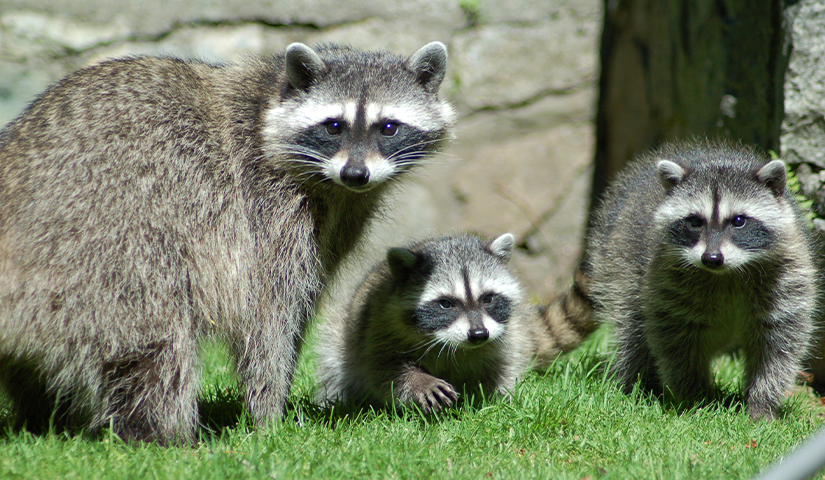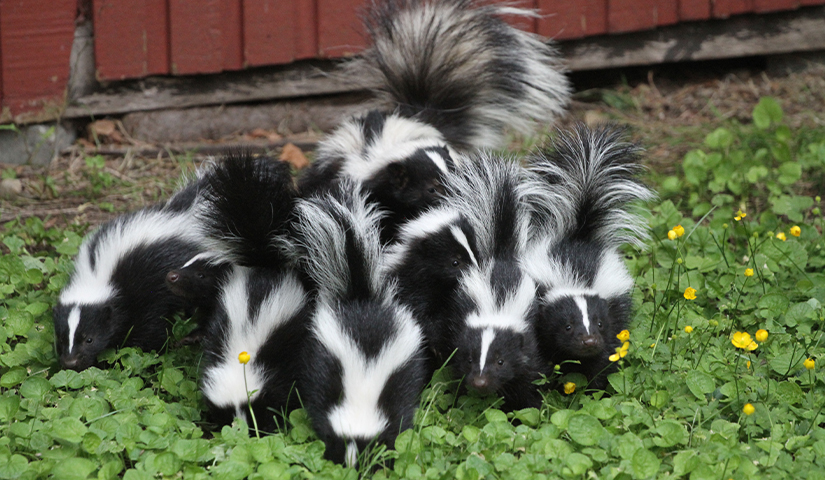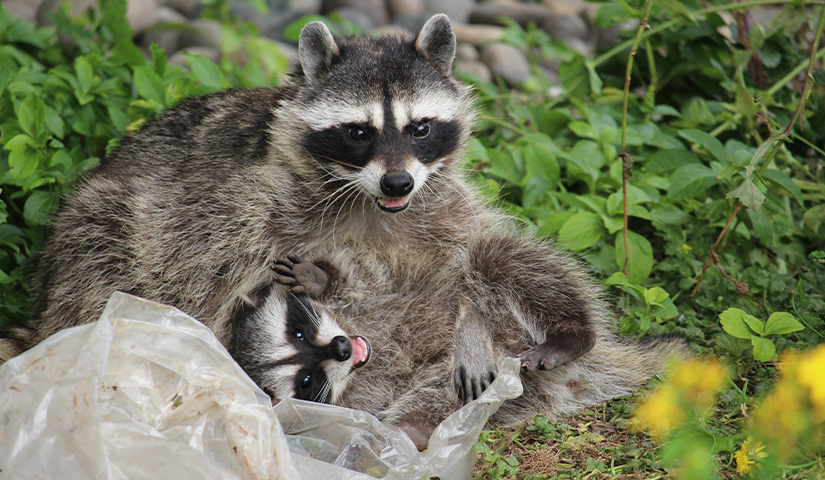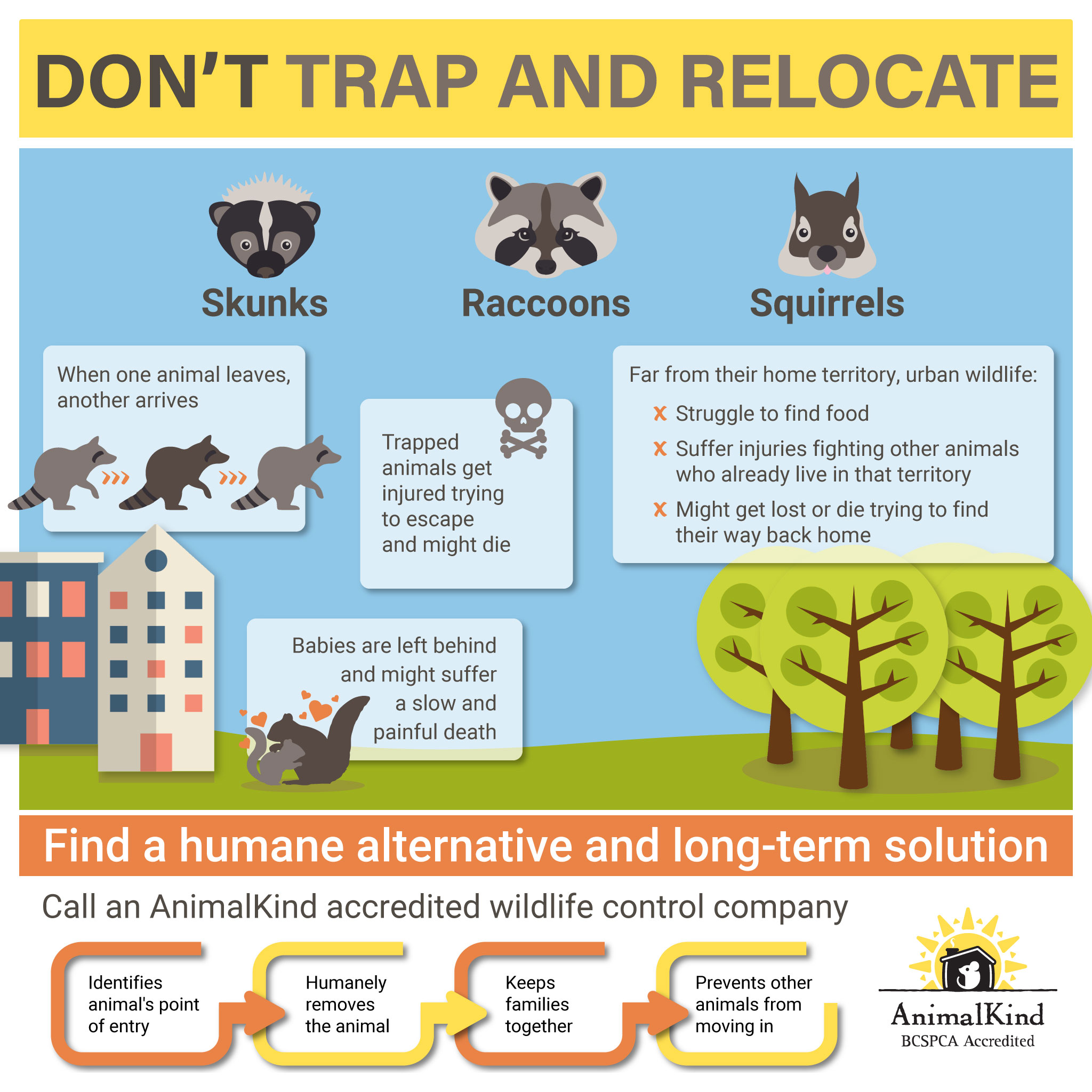Prevent starving babies by safely and humanely excluding wildlife
When conflicts with wildlife arise, it’s important to consider the consequences of excluding or relocating that animal. For example, if a mother raccoon is trapped and relocated by a pest control company, a fragile litter is left behind to fend for themselves.
For those babies, the most likely scenario is a slow and painful death from dehydration and starvation.

Having wildlife nesting in human structures is a common conflict in B.C.
Contrary to what many believe, trapping and relocation for wildlife control is not a long-term solution and is not humane. One-way doors and exclusion techniques can be effective, but it’s important to ensure you are not separating a mother and babies.
Here is why trapping and relocation of wildlife is not humane:
When you trap and relocate, orphaned babies are left behind to suffer
Separating mothers from their litter has life and death consequences.
Baby animals like raccoons, squirrels and skunks rely entirely on their mother’s care for the first few months of their lives. During this time, mothers leave the den in search of food for their babies.
If a foraging mother is trapped and relocated far away from her home territory, her babies are left behind and face dying of starvation. Similarly, if a one-way door is installed and the mother can exit , but the babies cannot, they will face a similar fate.
Urban wildlife species like raccoons and squirrels keep multiple dens in their home territory.
When humane exclusion methods that give mothers time to get their babies (such as mild humane harassment) are used to remove them from your property (instead of trapping and relocation), the mothers will simply take their babies to a different den site. Of course it is important to check that no babies are left behind before the old den site is closed off.

When you trap and relocate, animals face the dangers of unknown territories
Relocating an animal far from their home territory puts them at risk of injury or death. Surviving in an unfamiliar environment is dangerous. Relocated animals may struggle to find sources of food or places to den. They might succumb to injuries caused by fighting other animals who already live in that territory.
For urban wildlife, the situation is no different.
Raccoons, skunks and squirrels have adapted to urban environments. When they are trapped and relocated to unknown areas, they might lack the skills to survive in their new environment. Moms might get lost or die trying to find a way back to their babies.

When you trap and relocate, moms get injured trying to escape
Animals who are trapped often injure themselves and might die while trying to escape.
Mother animals are especially motivated to fight hard to escape as they know their little ones are waiting for them. Injured mother raccoons may not be able to care for their babies, even if they are back with their litter.
To avoid this scenario, humane pest control companies will focus on ensuring the mother can move her babies. They will locate and if needed, remove the little ones, making sure no babies are left behind. Then they reunite mother and babies, preventing animal suffering by keeping families together.
How to avoid causing animal suffering when you have unwanted wildlife on your property?
The first step is to say no to trapping and relocating wildlife.
Being aware of baby season in urban wildlife species is another great step you can take. The best way to mitigate human-wildlife conflicts is to prevent them from happening in the first place! Prevent entry before baby season starts to ensure animals cannot den or nest in your home.
Long-term solutions for wildlife control require implementing a management plan that includes identifying the animal’s point of entry, humanely excluding or removing the animal, and making sure no other animals can enter. A professional animal-friendly wildlife control company can do that work. In B.C., contact AAA Wildlife Control or Alternative Wildlife Solutions to do the job. They provide effective long-term solutions using humane practices.
Don’t have an AnimalKind company near you? Ask your local wildlife control company these questions to make sure they are considering mothers and babies in their exclusion work.
Stories about babies left behind when a mother is trapped and relocated are a sad reminder of how common this cruel practice is. Don’t trap and relocate and make sure mothers and babies stay together!
Useful resources:
- Learn about raccoons and how to prevent unnecessary conflicts.
- Read about coexisting with wildlife.
- Learn how to choose a wildlife control company.